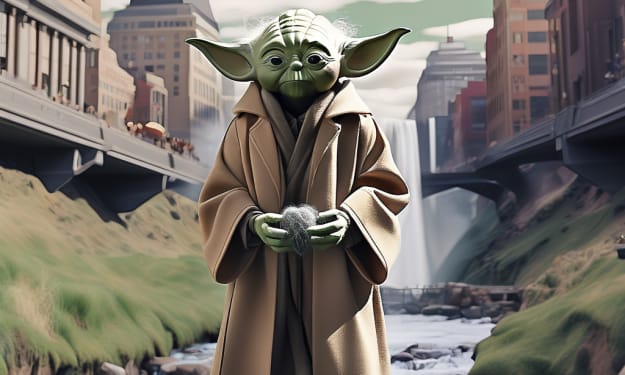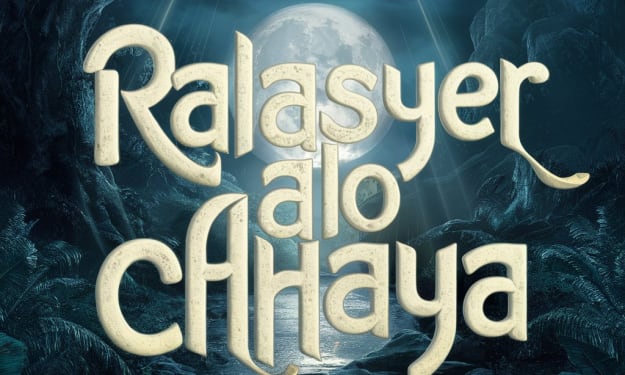Colonialism in Literature
Joseph Conrad’s Heart of Darkness and Chinua Achebe’s Things Fall Apart

It is a widely held belief that colonialism had a hugely negative effect on the cultures taken over and altered by colonizers, and this is clearly evident in all- if not most- of Africa and some of Asia. This destruction of culture and lives by way of colonization is most readily depicted in Joseph Conrad’s Heart of Darkness and Chinua Achebe’s Things Fall Apart, though their perspectives of the same major events differs greatly. Heart of Darkness is from the perspective of Marlow, a man sent to the Congo from Europe, and his journey down the Congo River, while Things Fall Apart is from the perspective of a man named Okonkwo, a native of Africa and a tribe known as the Igbo. The contrast between these two perspectives gives the reader a fuller understanding of the different effects colonialism had on both societies.
“And at last the locusts did descend. They settled on every tree and on every blade of grass; they settled on the roofs and covered the bare ground. Mighty tree branches broke away under them, and the whole country became the brown-earth color of the vast, hungry swarm.” This passage, taken from much earlier on in the book than the actual arrival of the missionaries into the lives of the Igbo, is an example of some very creative foreshadowing on the part of Achebe, as the locusts have been coming for years, but their symbolic significance in this passage lies in the inevitable arrival of the colonizers, which will alter the landscape (ex: the locusts seem to cover the entire earth, and nothing remains of what was once clearly visible) and psychology of the natives of Africa irreparably. The phrase “They settled” is repeated multiple times, highlighting the inescapable presence of the locusts. The choice by Achebe to use the word “settle” clearly illustrates the comparison between the colonizers and the locusts. The branches breaking under the weight of the locusts represents the fabric of society that was preexisting in the natives of Africa breaking, crumbling beneath the onslaught of colonialism and white settlement.
For most characters in Things Fall Apart, the arrival of the white men was comical for a time (as they mocked the language skills of the translator), but became a more serious matter as members of their tribe began to convert to the Christian faith and reject the beliefs of their people. The character of Nwoye, the son of Okonkwo found in the colonizers, a place where he felt he belonged and where he had value as a human being, as was the same for all the people that the Igbo culture deemed outcasts of society. Nwoye was always considered a disappointment for Okonkwo, who called him weak and womanly and beat Nwoye frequently. Nwoye’s only true friend was Ikemefuna, a prisoner of war that soon became as a son to Okonkwo and a brother to Nwoye. However, Ikemefuna was executed, and being as Ikemefuna was a buffer for Nwoye and his father, to make their relationship a more stable and friendly one, the moment he was killed, so was Nwoye’s love for his father. When the white men came and told of their religion to the people in Okonkwo’s village, Nwoye felt as if they were speaking only to him, and as if he was a thirsty man drinking water for the first time. “He felt a relief within as the hymn poured into his parched soul. The words of the hymn were like the drops of frozen rain melting on the dry palate of the panting earth.”
As stated previously, the introduction of the European missionaries is not presented as a tragic event—it even contains some comical elements; for example, the villagers mock the interpreter’s dialect. They neither perceive the missionaries as a threat nor react violently like the village of Abame, even though the missionaries call their gods “false” outright. Okonkwo’s wish to force the white man out with violence is an example of his rash, violent nature that clashes with Igbo beliefs as their customs and social institutions emphasize the wisdom of seeking a peaceful solution to conflict before a violent solution. Uchendu, Okonkwo’s uncle, is seen as the voice of the Igbo customs in times when people are willing to ignore their traditions, as he states that the killing of the first white man was foolish, for the villagers of Abame did not even know what the man’s intentions were. “Never kill a man who says nothing. Those men of Abame were fools. What did they know about the man?”
Again, as previously stated earlier, Things Fall Apart is not one-sided in its portrayal of colonialism, as it presents the economic benefits of cross-cultural contact and reveals the villagers’ delight in the hospital’s treatment of illnesses. Mr. Brown, the missionary, urges the Igbo to send their children to school because he knows that the colonial government will rob the Igbo of self-government if they do not know the language; in essence, he urges the Igbo to adapt so that they won’t lose all autonomy. However, throughout all the positive light shed on colonialism with the introduction of these social, medical and economic benefits to the Igbo people, there is still the issue of forcing them to adapt to a new way of life, as they are suddenly forced to live by European standards. Mr. Brown is however a gentle introduction to European civilization in comparison with his predecessor, the more radical Reverend Smith, who unlike Mr. Brown, is uncompromising and strict, and demands that his converts reject all of their lifelong beliefs; he shows no respect for indigenous customs or culture, and is intolerant of other ways of thinking. He is the stereotypical white colonialist, and his behavior epitomizes the intolerant and uncompromising nature that is at the root of all problems to do with colonialism.
“Does the white man understand our custom about land?” “How can he when he does not even speak our tongue? But he says that our customs are bad; and our own brothers who have taken up his religion also say that our customs are bad. How do you think we can fight when our own brothers have turned against us? The white man is very clever. He came quietly and peaceably with his religion. We were amused at his foolishness and allowed him to stay. Now he has won our brothers, and our clan can no longer act like one. He has put a knife on the things that held us together and we have fallen apart.” (Chapter 20)
This quote, in the simplest way, embodies everything that is wrong with colonization: one pompous culture telling another how to fix something that doesn’t need fixing. The initial threat to the Igbo culture was subtle, humorous, considered a pain in their collective behind rather than a potentially destructive force. When it was made clear the threat the white men bore with their religion and their foreign way of life, no one had the power to fight them. There was however, a final point to be made in regards to the effects and images of colonialism in literature, and it has to do with a passage from Heart of Darkness by Joseph Conrad.
“They were dying slowly—it was very clear. They were not enemies, they were not criminals, they were nothing earthly now—nothing but black shadows of disease and starvation, lying confusedly in the greenish gloom. Brought from all the recesses of the coast in all the legality of time contracts, lost in uncongenial surroundings, fed on unfamiliar food, they sickened, became inefficient, and were then allowed to crawl away and rest. These moribund shapes were free as air—and nearly as thin. I began to distinguish the gleam of the eyes under the trees. Then, glancing down, I saw a face near my hand. The black bones reclined at full length with one shoulder against the tree, and slowly the eyelids rose and the sunken eyes looked up at me, enormous and vacant, a kind of blind, white flicker in the depths of the orbs, which died out slowly. The man seemed young—almost a boy—but you know with them it's hard to tell. I found nothing else to do but to offer him one of my good Swede's ship's biscuits I had in my pocket. The fingers closed slowly on it and held—there was no other movement and no other glance. He had tied a bit of white worsted round his neck— Why? Where did he get it? Was it a badge—an ornament—a charm—a propitiatory act? Was there any idea at all connected with it? It looked startling round his black neck, this bit of white thread from beyond the seas.
“Near the same tree two more bundles of acute angles sat with their legs drawn up. One, with his chin propped on his knees, stared at nothing, in an intolerable and appalling manner: his brother phantom rested its forehead, as if overcome with a great weariness; and all about others were scattered in every pose of contorted collapse, as in some picture of a massacre or a pestilence. While I stood horror-struck, one of these creatures rose to his hands and knees, and went off on all fours towards the river to drink. He lapped out of his hand, then sat up in the sunlight, crossing his shins in front of him, and after a time let his woolly head fall on his breastbone.
The language used in this passage, words and phrases such as “nothing earthly” and “black shadows,” shows the empty and intangible nature of the natives post-colonization. They were starved and forced into slavery, made to work at dangerous tasks, and treated as subhuman creatures unworthy of the most basic of human rights. The native man who crawls on all fours to drink water from the river shows the level of subhuman at which the African natives were placed by the colonizing Europeans; when Marlow offers the biscuit to one of the natives, the gesture seems futile, like gutting a man and then offering him a tiny band-aid and an empty apology: a nice gesture, but too little too late. The white worsted around the neck of the native is symbolic of the white man choking the life out of a great and beautiful culture, but also of surrender, of giving in to something that has more power over you than you are capable of fighting. The natives were powerless to fight the colonizers when the threat of their presence became more apparent, and so when all hope was lost, they gave in to what they felt was inevitable.
It’s true that there are too many horrible results of the colonization of Africa to see any positive effects, but the reason why the colonizers were able to amass so much power in these countries was the good things they gave to the natives, such as hospitals and education. These blessings disguised their true intentions, to take over the continent and make a profit from the suffering of its people. In Heart of Darkness, Marlow was given the opportunity to see what his culture had done to destroy another, and he was made disgusted in some instances by the amount of suffering that the Europeans had brought to Africa. In Things Fall Apart, we were able to see things from the other side of the glass, from the eyes of the natives, how prosperous and happy they were before the arrival of the Europeans, and how the treachery of the white men destroyed their complex and beautiful culture. In this instance, one is reminded of a quote from Hamlet by William Shakespeare: “[…] one may smile, and smile and be a villain […]”
About the Creator
Amalie Ascanius
Learning to overcome trauma through writing.
Follow me on Instagram @rahbek.a92
Enjoyed the story? Support the Creator.
Subscribe for free to receive all their stories in your feed. You could also pledge your support or give them a one-off tip, letting them know you appreciate their work.






Comments
There are no comments for this story
Be the first to respond and start the conversation.